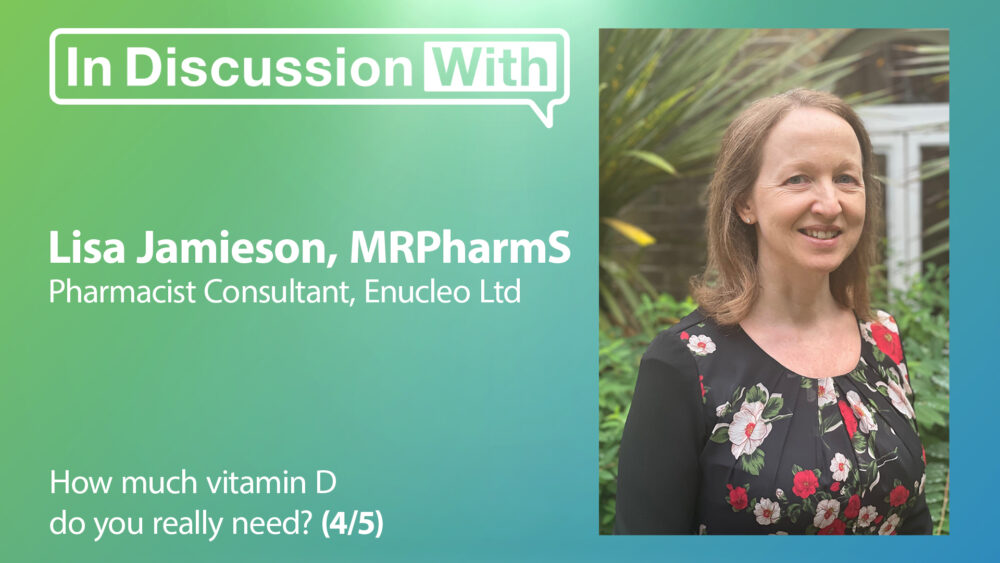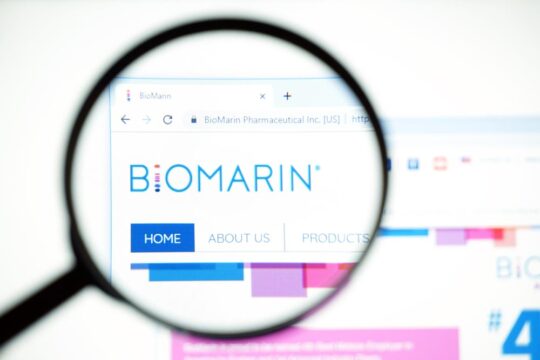Advertisment
How much vitamin D do you really need?

Research shows that vitamin D has functions beyond bone health and is critical for immune function. In addition, vitamin D can only be activated in the body when the individual is magnesium replete, according to Lisa Jamieson, pharmacist consultant in nutrition.
Vitamin D is classed as a vitamin and as a nutrient. However, “our main source of vitamin D is through the action of ultraviolet light on the skin and in the UK we can only make vitamin through the action of sun on our skin between the months of about April to September, because that’s when the sun is at the right angle”, explains Lisa Jamieson. Other factors that reduce the ability to make vitamin D include living at northerly latitudes and skin colour, because the pigmentation in skin acts as a natural sunscreen. “So, people with darker skin tones who live very far north within the UK … will struggle to make vitamin D to reach the optimal levels throughout the winter”, she says. Currently vitamin D supplementation is recommended during the winter (October – March) for everyone “especially those people who are more at risk – people who cover their skin, people with darker skin tones, people who are indoors all day [such as those] in Care Homes”, says Ms Jamieson.
Dose recommendations for vitamin D vary considerably. (The NICE recommendation is 400i.u. (10mcg) per day). Vitamin D receptors are found in many tissues suggesting that it is important for more than bone health. “Vitamin D is really important for how the immune system functions and vitamin D deficiency is associated with lots and lots of different conditions that are affected by the immune system. So, for example, …. you’re at much higher risk of developing multiple sclerosis if you’ve had a vitamin D deficiency”, she says. Moreover, the prevalence of multiple sclerosis is greater in areas that are further north. “So, it’s important that we consider vitamin D beyond just bone health”, she emphasises.
Another important factor is that magnesium is needed for the enzymes that metabolise vitamin D in the body. “So, if an individual is magnesium deficient, they may take a vitamin D supplement but their body won’t be able to access the active form of vitamin D”, explains Ms Jamieson. This could be a confounding factor in research studies that may have been overlooked in the past. “When you look at the SACN report for vitamin D calcium is mentioned throughout that report – over 300 times – magnesium is not mentioned once. So, it is really important to consider that magnesium is needed and we need to be replete in magnesium in order for us to be able to actually access the vitamin D from a vitamin D supplement – and that’s potentially why we’ve got these wide variations and response in various different intervention studies for vitamin D”, she says.
Taking vitamin D supplements
Vitamin D is a fat-soluble vitamin and ideally it should be taken with food, if possible, a fat-containing meal. Currently the recommended dose is 10 micrograms (400 i.u.) but larger doses are available. Some people have found through a process of trial and error that they respond better to larger doses, Ms Jamieson acknowledges.
“We do find, as well, when people become deficient, they do need quite large supplemental doses and a lot of the prescribed doses are of the orders of … more than 10,000 units in order to get somebody back [to a satisfactory level], so it depends where you start from. … I think what’s important is to know what your own level is, to consider magnesium alongside, … and then consider what dose may be needed for you as an individual to get you up to a good, optimal blood level.
About Lisa Jamieson
Lisa Jamieson BPharm (Hons), MSc (Clin Pharm), MSc (Nutr Med), MRPharmS
Lisa Jamieson currently works as a pharmacist consultant from her own company, Enucleo Ltd. She has a portfolio career with two main roles – first, as a senior consultant in a market access consultancy, working at the interface between the pharmaceutical industry and the NHS and second, as a pharmacist consultant in nutritional medicine. This latter role involves educating pharmacists and other healthcare professionals either in writing or as a speaker at conferences.
Read and watch the full series on our website or on YouTube.
This episode of ‘In Discussion With’ is also on Spotify. Listen to the full podcast now.





